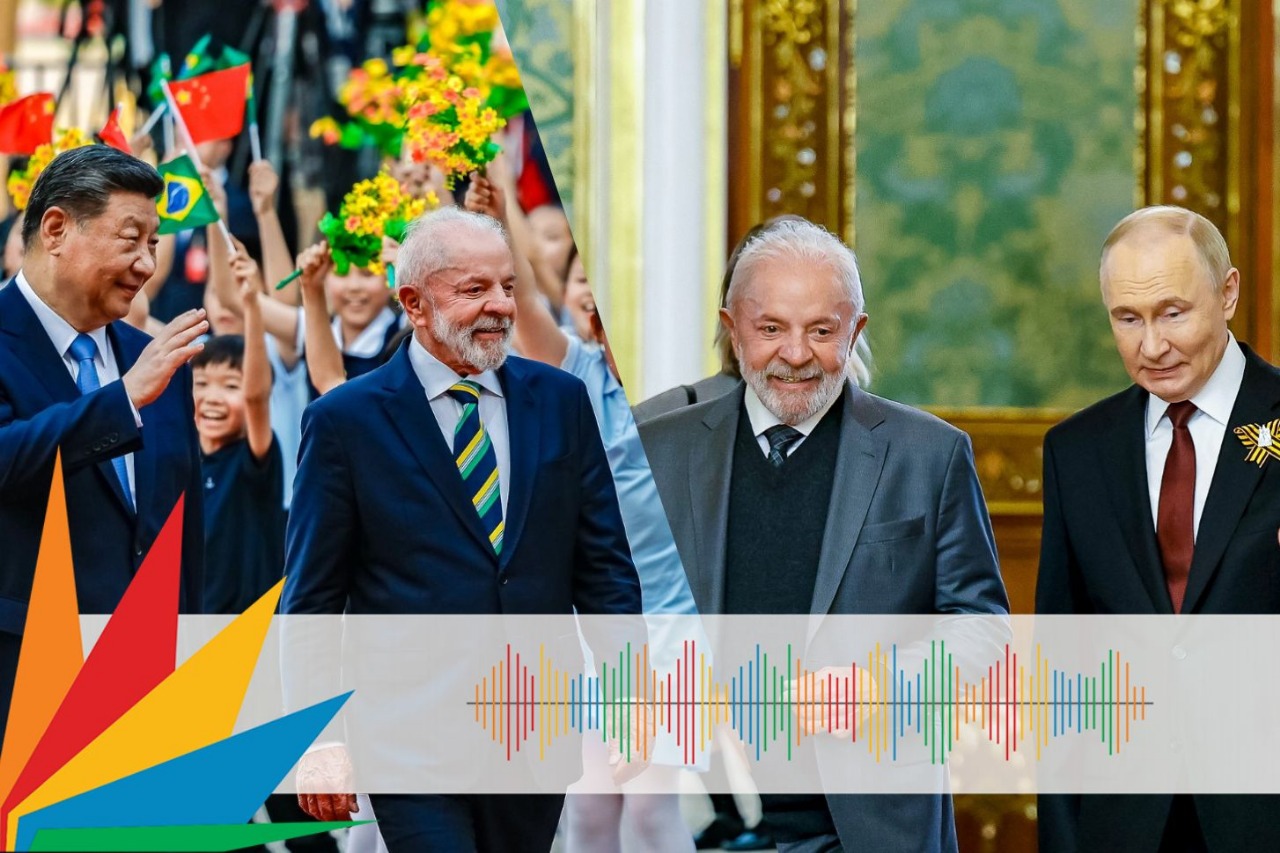BRICS Brasil Bulletin #05 - Lula reinforces BRICS' role and advocates for multilateralism and new global governance during visits to Russia and China
During his engagements in Russia and China, President Luiz Inácio Lula da Silva highlighted BRICS as a driving force for the Global South, advocated for a multipolar order, established strategic partnerships, and promoted multilateralism and sustainable development. Listen to the report and find out more.

Report: Leandro Molina / leandro.molina@presidencia.gov.br
Voice-over: Inez Helena Soares Mustafa / inez.mustafa@presidencia.gov.br
Reporter: In his visits to Russia and China, President Luiz Inácio Lula da Silva consolidated Brasil’s image as an important player in strengthening BRICS and advocating a new international order based on cooperation and the reorganization of international relations between various countries.
Lula: It is no exaggeration to say that, despite the more 15,000 kilometres that separate us, we have never been closer. Increasingly, BRICS will become an essential space for coordination in the Global South to build a fairer and more efficient multipolar order.
Reporter: This was President Lula’s speech to the Chinese president, Xi Jinping, highlighting the role of BRICS as an essential platform for articulation in the Global South and building a more balanced multipolar order. His passage through China was marked by progress on agreements in the realm of innovation, energy, health, and sustainable development. In Beijing, Lula reinforced the ties with Brazil’s main trading partner, promoting bilateral agreements that combine 27 billion reais in investment. During the Brazil-China Business Forum, Lula highlighted the partnership with China that goes beyond commercial interests and is decisive in tackling social, environmental, and technological challenges.
Lula: Over the past decade, the ties between Latin America, the Caribbean, and China have strengthened. China is already the second-greatest trade partner with the Community of Latin American and Caribbean States (CELAC) and one of the most important direct investors in the region. The partnership with China is a dynamic element for the regional economy.
Reporter: Lula reaffirmed the Brazilian commitment to multilateralism and emphasized priority areas for cooperation, such as energy transition, food security, fighting poverty, and technology innovation.
Lula: Brasil is promoting the strength of multilateralism. Wanting to return to the protectionism theory is no one's interest, except for the one who proposed the idea.
Reporter: Before going to Beijing, the president was in Russia, where he took part in the celebrations for the 80th anniversary of Victory Day in the Second World War and met with President Vladimir Putin. The visit was marked by talks on trade, energy, and technology. One of the focuses of the talks was bilateral trade, which, in 2024, reached an all-time high of 12.4 billion dollars.
Lula: My visit here is to discuss trade, to try to balance it out, because we are working with the idea that a good trade policy is a two-way street. We buy, we sell, more or less, in the same proportion that no one is harmed.
Reporter: Both in Russia and China, with signed agreements and advanced dialogues in critical areas for national development, the government showed that it seeks not only to balance its trade balance but also guarantee that the country has an active voice on BRICS and on the construction of a less conflictuous and more cooperative world.